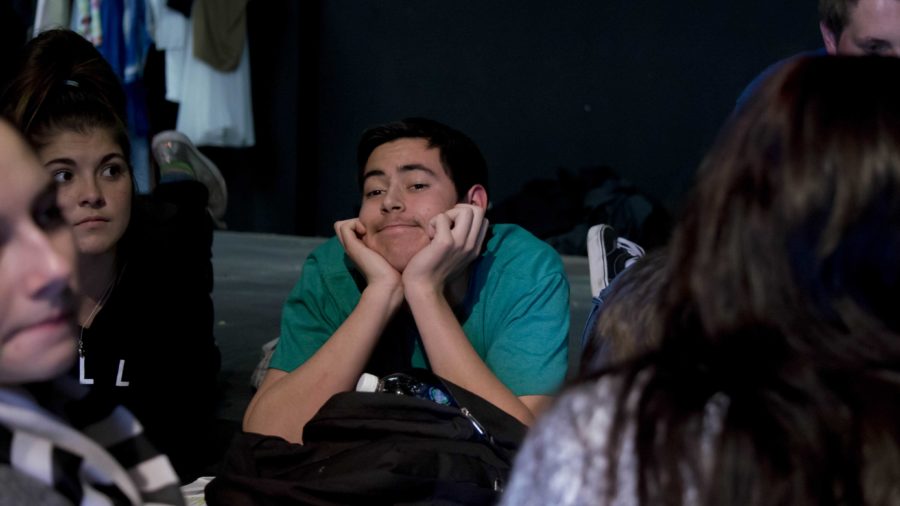Motivation For Procrastination
Micheal Griffin, senior, relaxing while drama discusses their next production.
With graduation right around the corner, more and more students are falling victim to what is commonly referred to as senioritis.
“Senioritis is just people being lazy,” said Michael Griffin, senior. “I know you have to get through school, so I just don’t want to rush it.” Griffin said that it is this perception of not wanting to rush senior year that has prevented him from developing senioritis.
Whether it’s the increased stress of college applications, or simply the anxiety that comes along with graduation causing senioritis, teachers tend to notice their students’ lack of effort increases second semester as it grows closer to the end of the school year.
Don Crowell, physics teacher, said “It’s mostly an excuse. Everybody gets tired toward the end of the year.”
When it comes to senioritis, Kevin Buddhu, English teacher, said it’s inevitable but not entirely the fault of seniors. Buddhu suggests there are more factors contributing to students developing senioritis than just getting tired of high school.
“I think the system, as we have it constructed, almost encourages [senioritis],” said Buddhu. “Sophomores and Juniors are told that by taking more classes they can have a smaller class schedule and leave early their senior year. Does this cause motivation or is it another reason to slack off during senior year?”
“I think as long as students realize that ‘Yes, I am working for myself and there is a tangible benefit from it’, then work becomes that thing that nourishes who we are,” said Buddhu.
In hope of preventing senioritis among his students, Buddhu intends to increase the demands of his class as well as require reading that will be controversial among his students in order to keep them engaged.
Unlike other teachers, Joel Groves, math teacher, said his experience isn’t like most others. “I think it’s a real thing[…]but I’m not seeing a lot of [senioritis] in my AP class,” said Groves. “The ones that are affected by it just stop working.”
Most teachers, however, share the same opinion that senioritis will negatively impact students when they graduate. “I think it breeds a kind of expectation that doesn’t serve students very well for their freshman year of college,” said Buddhu.

















































































![Senior Ditch Day... Relaxation or Truancy? [Video]](https://achsstinger.com/wp-content/uploads/2017/10/IMG_7119-900x599.jpg)
![Heavy Rain Hits Cam High [video]](https://achsstinger.com/wp-content/uploads/2017/02/maxresdefault-900x506.jpg)



